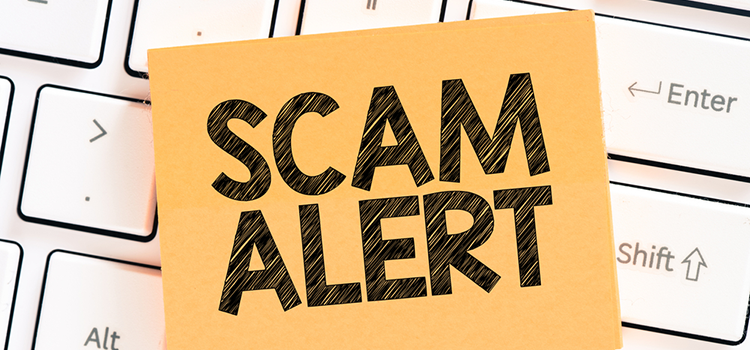Seven Keys to Avoiding Post-Disaster Scams
As we’ve seen time and time again, disasters have a tendency to bring out the best in us. From neighbors helping neighbors, to foreign countries sending aid, catastrophe has a way of bringing people together.

Unfortunately, the turmoil that rises up in the wake of a major disaster is also a prime breeding ground for scams and scam artists. These crooks take advantage of the anguish and confusion surrounding a major misfortune and use it to twist our fears and sympathy to their advantage. Fortunately, there are a few key ways you can protect yourself from the sort of scams that tend to pop up during and after a disaster.
Remember that anyone can call you or send you mail
A large portion of the most successful scams start simply with a phone call or a piece of mail. The people calling sound authoritative and the mail looks authentic, so you go along with what you’re being told. That’s why it bears remembering that anyone can call you and anyone can cobble together an official-looking piece of mail. Avoid assuming that just because someone seems credible, that they are.
Independently verify everything
If someone calls and tells you that you need to make a payment immediately in order to maintain your flood coverage (a popular scam that cropped up again in the aftermath of Hurricane Harvey’s record rainfall), hang up the phone and check with your insurer directly. Don’t use any phone number provided via robocall or unsolicited mail. Use the phone number provided on your monthly bill or find one directly on your insurer’s website.
Scammers will always try to keep you inside their loop by providing you with phone numbers, mailing addresses, email addresses, and website links that they control. If you’re ever suspicious, be sure to independently verify what you’re being told.
Legitimate services will almost never pressure you to take any action immediately
Many scams work because they prey on our fears – that if we don’t do what we’re told to do, something terrible might happen. That fear is only increased during a disaster, when terrible things are already happening and we’re just trying to minimize the damage.
If someone is telling you that you need to act now, chances are good they’re trying to prevent you from verifying whether or not they’re a legitimate business or service. Don’t let the pressure get to you.
Never make payments or give out personal information on a phone call you didn’t initiate
There may be a legitimate charity or business calling you directly and asking you to make a payment, but the odds are against it. Your safest bet is always to avoid making payments or providing crucial personal information over the phone or through email. If you do need to do either, at least make sure you’re the one who started the call. You’re highly advised to never include confidential information in an email – if you need to submit that kind of information online, make sure you’re using a secure site (the web address should begin with https).
Be wary of anyone going door-to-door
Scammers have been known to pose as contractors, charity workers, or even government officials, and unfortunately fake uniforms and ID cards can be pretty convincing. Just keep in mind that if anyone is trying to sell you something or looking for a donation, you can say no and then do the necessary research. You should be especially wary of anyone asking for full payment upfront on any service. Also, no government employee should be asking you for payment or confidential financial information before providing a benefit or service.
Stick with charities and services you know and trust
One of the best ways to protect yourself is to simply stick with the charities and businesses you’re already familiar with. That isn’t to say you can’t give to new charities or use new businesses, but the best research is usually firsthand. At the very least, lean on services with an established track record. If you can’t verify that the charity or business in question in credible, chances are good you can easily find an alternative that is.
Document everything
Even when dealing with legitimate businesses and charities, things can go awry. When hiring someone to perform any sort of service, make sure that
- They’re qualified and you’ve seen any licenses or certifications required by their field;
- They provide you with an estimate upfront, followed by a written agreement detailing what work will be done by when and at what price;
- You confirm with your insurer that any work that’s supposedly covered by your insurance actually is; and
- You pay with a credit card whenever possible. Paying with a credit card gives you the ability to reverse any fraudulent charges, adding an extra layer of protection.
Good recordkeeping doesn’t guarantee that you’ll avoid any and all potential scams, but it will make things much easier to untangle in the event someone tries to take advantage of you.
Good luck and stay safe!
Union Plus Credit Counseling
Union members can get a no-obligation money and credit assessment from certified, experienced consumer credit counselors though Union Plus Credit Counseling. Powered by the non-profit Money Management International (MMI), your free session will cover a complete financial review, assistance in budgeting, advice for working with creditors, and more.
